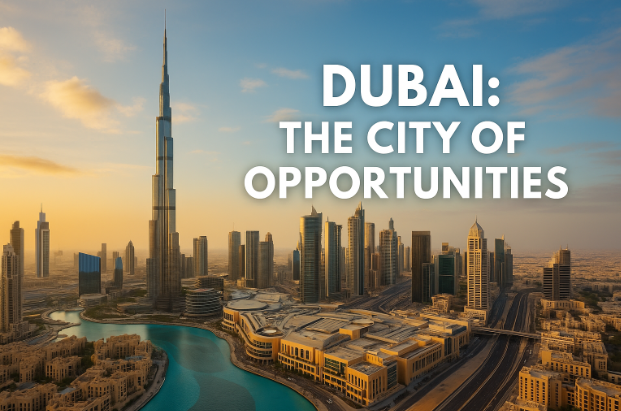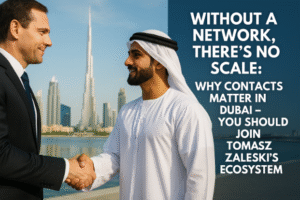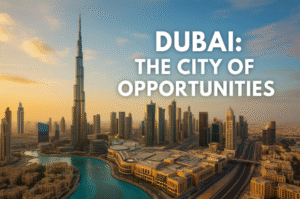Introduction
Dubai has long attracted capital, talent, and technology. Today it is not only a tourist destination but also a hub for private capital, a decision-making center for expanding companies, and a safe harbor for wealth. Below is a comprehensive overview of investment and operational opportunities in the Emirate, written from the perspective of an investor who values legal stability, predictability, and speed of execution.
Regulatory and Tax Ecosystem – What It Really Means for You
- Simple tax system: no personal income tax, low, predictable VAT, and a competitive environment for companies. Corporate CIT operates within clear rules – the key is proper structure design and choosing the right jurisdiction within the Emirate.
- Free zones (DMCC, DIFC, JAFZA, etc.) offer various licenses, easy bank onboarding, and friendly compliance. Differences between zones matter (banking, property law, substance requirements), so matching the zone to the business model is essential.
- Property law: clear rules for acquiring real estate in freehold zones. Foreign investors can effectively manage assets through an SPV – simplifying exit and succession.
Industries Where Dubai Has a Systemic Advantage
- Real estate (residential and hospitality) – driven by expat demand, “asset-light living” models (premium rentals), dynamic short-term market, high developer quality, easy exit.
- Trade and logistics – Jebel Ali port, cargo connections, proximity to Asia, Africa, and Europe. For importers/exporters – time is an advantage.
- Financial services and private wealth – DIFC and legal environment favorable to private equity, family offices, fintechs, and asset managers.
- Technology and AI – government programs support automation, the data economy, and smart cities. Decisions are quick, pilots become implementations.
- Tourism and events – high seasonality but also a repeatable event calendar (conferences, fairs, MICE), boosting retail and F&B.
Real Estate: How to Read the Market Professionally
- Demand: driven by labor migration, corporate relocations, and capital protection investors. This is not just a “boom” – it’s a structural shift in demand.
- Supply: increasing, but premium and ultra-premium segments remain limited by location and land parameters. Developer quality and micro-location are key.
- Yield and risk: attractive returns in mid- and premium rentals. Risks: poor project selection, over-leverage, lack of cashflow management.
- Operations: standardized property management services, strong OTA presence, transparent settlements. Key: contracts, SLAs, and insurance.
Banking and Capital Protection
Dubai offers access to commercial banks, international institutions, and private banking. For HNWI clients, multi-banking (diversification), proper KYC/AML, and proof of funds documentation are essential. A well-designed corporate structure accelerates account opening and eases compliance.
Talent and Lifestyle as a Recruitment Advantage
- Global talent: expats make up the vast majority of the population – providing easy access to skills (technology, finance, hospitality).
- Quality of life: safety, business climate, infrastructure. This is a recruitment and retention argument – executives want to live here.
Costs and Speed of Execution
- In Dubai, setup time (company, license, office, bank account, first contracts) is often measured in weeks, not months.
- Costs are predictable – but you must include: licenses, real office (or flex), escrow/developer commissions, legal fees, insurance, VAT compliance.
Risks and How to Mitigate Them
- Regulatory risk: changes in corporate, AML, or short-term rental rules. Mitigation: local advisor and compliance updates.
- Execution risk: project delays, quality issues, contractual discrepancies. Mitigation: developer due diligence, inspections, penalty clauses.
- Currency risk: USD peg keeps revenues stable, but for European investors – FX fluctuations matter for cashflow and exit.
Entry Strategies – Three Scenarios
- Passive investor (HNWI): purchase a ready-to-rent asset + professional management + exit after 24–36 months.
- Founder/SME: company in the right free zone + bank account + first B2B contracts, later building a regional brand.
- Family office: SPV structures + multi-banking + diversification across assets (real estate, private debt, private equity).
Summary
Dubai is a rare case where capital and decisions meet execution. For an investor, this means real time and legal advantage. The key is a local partner, a trusted network, and a tailored structure.




